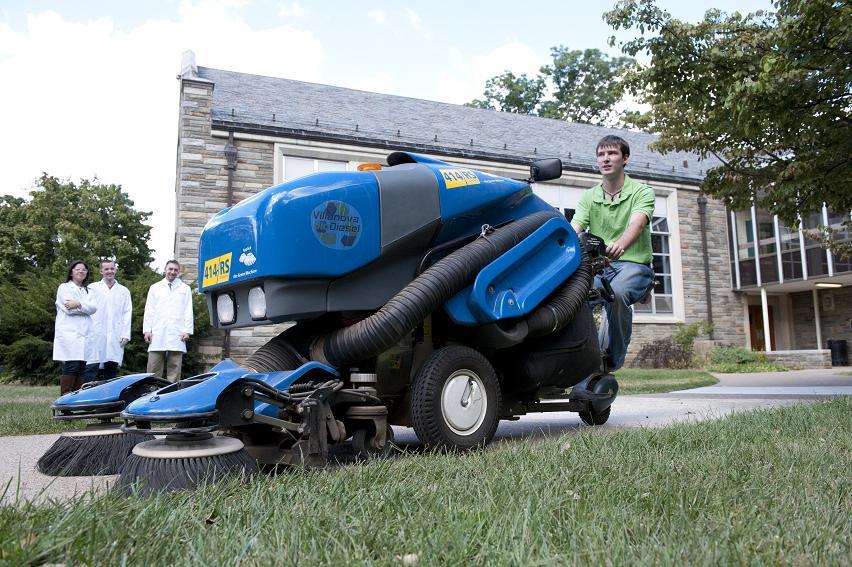Villanova students expand from FAME production into soap research



Photo: Villanova University
April 26, 2011
BY Luke Geiver
Chemical engineering students at Villanova University may only be producing enough biodiesel to fuel on-campus vehicles and lawnmowers, but they still face the same issues large producers must deal with: what to do with the glycerin coproduct? After two years of biodiesel production, the student-run biodiesel group has found an answer. While converting the glycerin coproduct into soap for sanitation purposes is certainly nothing new, the process has helped the students find a sustainable and potentially profitable way to use the coproduct.
Randy Weinstein, professor and chair of the department of chemical engineering and director of the college of engineering’s master of science degree program in sustainable engineering, said that the students didn’t want to put the glycerol into the Villanova compost system, or pay to dispose of it. Instead, he said, the students started making bars of soap to use for promotional items, and now have even garnered serious interest from a local garden house that is interested in selling the soap in their shops as a totally recycled soap product. “So,” he said, “we have to figure out the next steps to be able to do that because we aren’t a for-profit company.”
The student-run program, which currently includes five full-time students, has been going for roughly two and a half years using typical lab equipment, Weinstein said. In addition to equipment purchased by the chemical engineering department, he also added that “the reactors are actually retrofitted water heaters that we got from Home Depot.”
Advertisement
WVO collected from the campus is used to make the biodiesel and after the recent developments with the glycerin-to-soap potential realized by the students, he also said that they are trying to study the soap process and figure out how to optimize the process for “faster, cleaner,” and “color variations.”
The biodiesel efforts on campus have also helped the year and half old sustainable engineering program led by Weinstein. “It is booming without having to advertise,” he said. “We have 27 students enrolled now, we have 22 accepted for the fall, and the applications are still coming in.” And after the chemical engineering students’ recent work with soap production, there is also the possibility that a student work-study program will be formed to increase student participation and success of the soap work.
Advertisement
Upcoming Events





